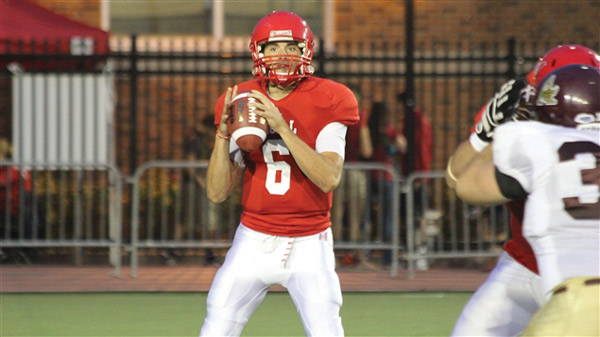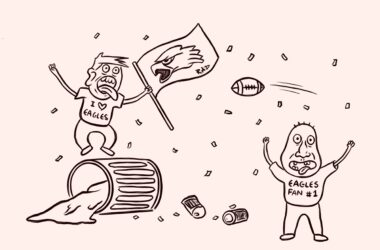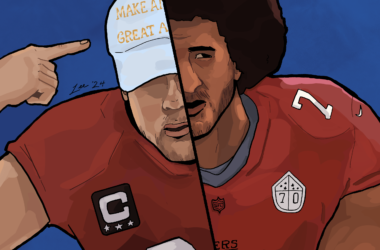“[Attending McGill] was the most life-changing experience for me,” Redmen wide receiver coach Ryne Bondy B.A. ‘13 said. “The experience I had in Montreal, at McGill, was so amazing that it made me want to stay, so I wanted to try and create that culture as well for the current players.”
Assistant coaches are an integral part of any sports team and, while long-term job-security might not be in the cards for many of these coaches, all have a common desire to help their athletes reach their full potential. At McGill, there are a few recently-graduated former athletes who chose to stick around Montreal and work with the next generation of Redmen and Martlet athletes. Bondy, former Martlet hockey player Alyssa Cecere, and former Redmen hockey player Dave Urquhart now all serve as assistant coaches for their former teams.
The most profound thread between these coaches is a deep connection with the team and the school they once played for, but their backgrounds are diverse. Bondy played multiple sports before settling on one as a McGill varsity athlete.
“I literally played anything I could,” Bondy said. “But football was probably the [sport] I was most passionate about, I even played during the summer for a couple city teams as well.”
For Cecere, the assistant coach of Martlet hockey, McGill was part of her life long before she applied to the university.
“My mom had worked in athletics when I was young,” Cecere said. “I had McGill in the back of my head ever since I was a kid.”
However, McGill does not call to everyone. Some, like Urquhart, had to reach out to McGill themselves.
“For me, it was a little more serendipitous,” Urquhart said. “I sent out packages to two Canadian schools, and McGill was one of the two, and I had a response from [former Redmen hockey head coach] Marty Raymond, who was here [before current head coach Kelly Nobes], and that’s how I ended up at McGill.”
Playing on a McGill team means different things for every player. Most loved the team camaraderie, but for players in sports like football, where large rosters always means an influx of new players, the connection goes even deeper.
“We were a huge recruiting class,” Bondy said. “We had about 30 or 40 guys, all freshmen, [and] there were 10 of us in New Rez together, so we had a strong support system there.”
Naturally, as this group grew to become team leaders for the next generation, the time came to return the favour for a new rookie class.
“As a freshman player comes in, we set them up with a third- or fourth-year player who’s their mentor, someone who’s in the same program,” Urquhart said. “When you get in your third and fourth year, you’re already in a phase of your hockey career where you’re not only playing to improve your game, but you’re also looking at improving the people around you.”
Mentorship programs are not uncommon in McGill sports and the upperclassmen who take up these roles do so with intense commitment.
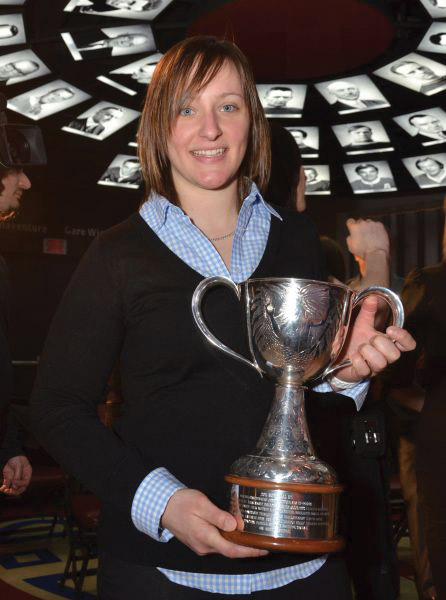
“It was something that we took to heart,” Cecere said. “We always wanted the younger players to have direction, but also want to be in that position one day to be able to lead the younger group.”
Since there are plenty of former McGill athletes with leadership experience and a passion for teaching, it makes sense for the team to reach out to alumni when a coaching vacancy appears.
Often, teams will wait a few years before bringing in an alumnus to coach; however, in some cases, the spot needs to be filled immediately. When he was asked to be a quarterback coach for Redmen football in 2012, Bondy had not yet graduated and had just finished his last season as a player.
“There’s a lot of coaches out there that are kind of scared to maybe bring in a coach right away, as soon as he’s done playing, because he’s friends with a bunch of the guys on the team,” Bondy said. “I think it wasn’t really an issue having played with a lot of those guys or being friends with them, I think it really helped and it was much easier to coach those guys.”
In other cases, alumni who later became coaches spent time away from the university to shape their careers. These graduates put everything on hold to come back.
Between graduating in 2011 and being appointed an assistant coach in 2014, Cecere had played for the Montreal Stars, coached at Dawson College, and held multiple jobs as a physical education teacher.
“When this [coaching job] came up, it kind of closed some doors,” Cecere said. “It closed my playing career, it closed my teaching at that time, but it kind of put everything into one.”
Assistant coaches also have to deal with uncertainty in their career–these positions are not permanent. Many coaches only stay for a few years and spend their time preparing for their next professional step; however, coaching is a profession where it is nearly impossible to know what that next move will be.
“Whether it takes me elsewhere, I don’t know,” Cecere said of her future. “It’ll depend on what other doors are open, what other options there are.”
Assistant coaching is not usually meant to be a permanent job. It is often a stepping stone for those aspiring to a higher sports career. Yet, some former players come from halfway around the world to coach for their old programs: Urquhart was playing pro hockey in Italy when he was offered the position at McGill.
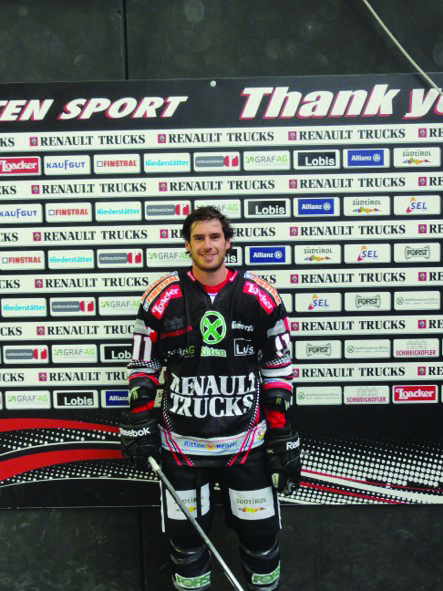
“My last year, we won the Italian championship,” Urquhart said, “The assistant coach who was with Kelly [Nobes] before […] left to take a job in the QMJHL, and Kelly called me about this job opening up.”
With two years left in his five-year contract in Italy, Urquhart took the job and came back to Montreal. Being able to give back to future generations of Redmen hockey players and to stay connected to McGill were crucial factors in his decision to return.
“I look at the people, I look at the players in the dressing room and I know they’re all going to be stars at whatever it is they decide to do, whatever field they end up in,” Urquhart said. “I feel like it’s pretty special being able to be a part of their lives and the development of these people that are gonna be leaders in whatever field it is they end up in.”
When athletes come to McGill, they often enter without a specific place in the McGill community and their teams become their connection to the university. With these deep-rooted ties to athletics, former players often don’t think twice about returning because they want to give back to the program that gave them so much as players and came to define their university experience.
